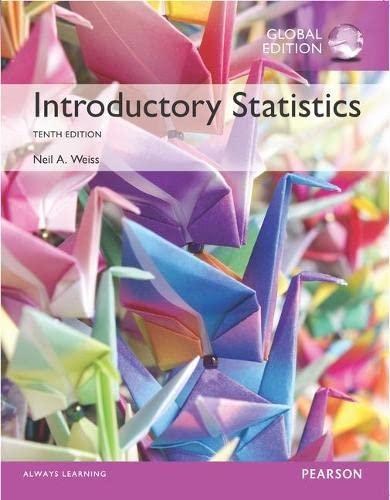Schizophrenia and Dopamine. Previous research has suggested that changes in the activity of dopamine, a neurotransmitter in
Question:
Schizophrenia and Dopamine. Previous research has suggested that changes in the activity of dopamine, a neurotransmitter in the brain, may be a causative factor for schizophrenia. In the paper “Schizophrenia: Dopamine β-Hydroxylase Activity and Treatment Response” (Science, Vol. 216, pp. 1423–1425), D. Sternberg et al. published the results of their study in which they examined 25 schizophrenic patients who had been classified as either psychotic or not psychotic by hospital staff. The activity of dopamine was measured in each patient by using the enzyme dopamine β-hydroxylase to assess differences in dopamine activity between the two groups.
The following are the data, in nanomoles per milliliter-hour per milligram (nmol/mL-hr/mg).
Psychotic Not psychotic 0.0150 0.0222 0.0104 0.0230 0.0145 0.0204 0.0275 0.0200 0.0116 0.0180 0.0306 0.0270 0.0210 0.0252 0.0154 0.0320 0.0226 0.0105 0.0130 0.0170 0.0208 0.0245 0.0112 0.0200 0.0156 At the 1% significance level, do the data suggest that dopamine activity is higher, on average, in psychotic patients? (Note: x¯1 = 0.02426, s1 = 0.00514, x¯2 = 0.01643, and s2 = 0.00470.)
Step by Step Answer:






